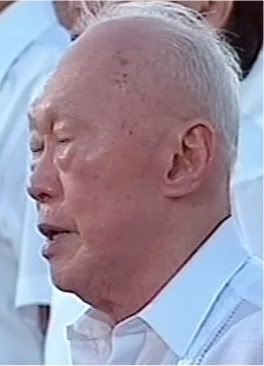<TABLE border=0 cellSpacing=0 cellPadding=0 width="100%"><TBODY><TR>Due process in trial of Taiwan ex-president
</TR><!-- headline one : end --><!-- show image if available --></TBODY></TABLE>
<!-- START OF : div id="storytext"--><!-- more than 4 paragraphs -->ALLOW me to clarify points made in last Tuesday's commentary, 'Test of Taiwan's rule of law'.
While the commentary is correct in pointing out that former president Chen Shui-bian's trial is a test of Taiwan's rule of law, its comments on the change of trial judges, information leakage and selectivity in deciding whom to investigate and prosecute need further clarification.
A review panel of Taipei District Court judges was convened to consider the question of whether Chen's multiple charges of corruption, money laundering and the 'state affairs fund' case should be combined, and it determined that a joinder of indictments was indeed the best course of action. Hence, the case involving Chen was reassigned to the panel of judges, headed by judge Tsai Shou-hsun, which had been handling the state affairs fund case since 2006.
Furthermore, in response to an appeal by the former counsel to reverse this decision, the Taiwan High Court rejected the appeal and confirmed that such a joinder was proper. This review and reassignment process was fully in keeping with due process of law.
As for suspicions that public prosecutors have leaked information to the press, Taiwan's Ministry of Justice has investigated the matter, but so far no evidence has been found. On the other hand, in the course of the investigation of Chen, his family members and others in connection with suspicion of corruption and money laundering, the various witnesses, legal counsel and the accused themselves inappropriately made public statements or provided information to the press. Thus, to state that information which appeared in news reports could have come only from public prosecutors is unfair.
As for allegations of prosecutorial selectivity, Ministry of Justice data do not reveal any pattern of selective prosecution of 'pan-green' politicians (belonging to the Democratic Progressive Party or the Taiwan Solidarity Union) within a multi-year timeframe. Over the nine-year period from 2000 to the end of last year, among the 75 legislators and officials in the central and local governments investigated or indicted for corruption or related crimes by prosecutors, 32 belonged to the 'pan-blue' camp (consisting of the ruling Kuomintang and its splinter parties), and 34 were pan-green, representing an insignificant difference.
All observers' concern over Taiwan's democratic development is greatly appreciated. The safeguarding of judicial independence and protection of human rights continue to be matters of top priority for Taiwan's government.
Peter Chen
Director
Information Division
Taipei Representative Office in Singapore

DIU!
</TR><!-- headline one : end --><!-- show image if available --></TBODY></TABLE>
<!-- START OF : div id="storytext"--><!-- more than 4 paragraphs -->ALLOW me to clarify points made in last Tuesday's commentary, 'Test of Taiwan's rule of law'.
While the commentary is correct in pointing out that former president Chen Shui-bian's trial is a test of Taiwan's rule of law, its comments on the change of trial judges, information leakage and selectivity in deciding whom to investigate and prosecute need further clarification.
A review panel of Taipei District Court judges was convened to consider the question of whether Chen's multiple charges of corruption, money laundering and the 'state affairs fund' case should be combined, and it determined that a joinder of indictments was indeed the best course of action. Hence, the case involving Chen was reassigned to the panel of judges, headed by judge Tsai Shou-hsun, which had been handling the state affairs fund case since 2006.
Furthermore, in response to an appeal by the former counsel to reverse this decision, the Taiwan High Court rejected the appeal and confirmed that such a joinder was proper. This review and reassignment process was fully in keeping with due process of law.
As for suspicions that public prosecutors have leaked information to the press, Taiwan's Ministry of Justice has investigated the matter, but so far no evidence has been found. On the other hand, in the course of the investigation of Chen, his family members and others in connection with suspicion of corruption and money laundering, the various witnesses, legal counsel and the accused themselves inappropriately made public statements or provided information to the press. Thus, to state that information which appeared in news reports could have come only from public prosecutors is unfair.
As for allegations of prosecutorial selectivity, Ministry of Justice data do not reveal any pattern of selective prosecution of 'pan-green' politicians (belonging to the Democratic Progressive Party or the Taiwan Solidarity Union) within a multi-year timeframe. Over the nine-year period from 2000 to the end of last year, among the 75 legislators and officials in the central and local governments investigated or indicted for corruption or related crimes by prosecutors, 32 belonged to the 'pan-blue' camp (consisting of the ruling Kuomintang and its splinter parties), and 34 were pan-green, representing an insignificant difference.
All observers' concern over Taiwan's democratic development is greatly appreciated. The safeguarding of judicial independence and protection of human rights continue to be matters of top priority for Taiwan's government.
Peter Chen
Director
Information Division
Taipei Representative Office in Singapore

DIU!

